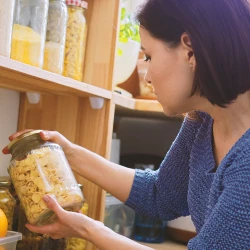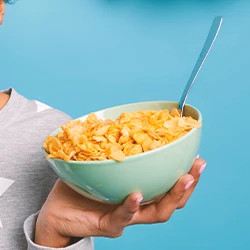You may be entitled to recover compensation and our legal team can help. Please click the button below for a Free Consultation or call us toll-free 24 hrs/day for legal advice by dialing (866) 588-0600.
In the past decade, glyphosate, a widely-used herbicide, has been linked to severe health issues, including cancer. Many everyday foods contain high levels of glyphosate, which has raised concerns about its long-term health effects.
If you’ve experienced health problems due to glyphosate exposure, legal options may be available.
Schmidt & Clark, LLP offers expert legal representation for such cases.
Table Of Contents
- Quick Summary
- How Do You Know if Glyphosate Is in Your Food?
- Glyphosate Side Effects
- How Do I Reduce Glyphosate in My Diet?
- Glyphosate-Free Foods
- Is Glyphosate Listed on Food Labels?
- What Product Has the Most Glyphosate?
- Reason for the Recall
- Average Settlement
- Filing a Glyphosate Lawsuit: What You Need to Know
- FAQs
- Do You Have a Roundup Claim?
Quick Summary
- Foods such as carrots, soy products, wheat flour, and vegetable oil contain high levels of glyphosate, a widely used herbicide.
- A study by Moms Across America found that over 95% of school lunch samples contained detectable levels of glyphosate.
- Over 75% of tested products had glyphosate levels exceeding 160 parts per billion—the daily limit considered safe for children.
- Switching to an all-organic diet can significantly reduce glyphosate exposure and the associated health risks.
What Foods Contain High Levels of Glyphosate?
Related Article: Glyphosate Lawsuit Update
How Do You Know if Glyphosate Is in Your Food?

The National Center for Biotechnology Information released a study showing that most foods contain pesticide residues, which can’t be washed off as herbicides like glyphosate penetrate the plant and fruit [2].
Having said that, natural products like vinegar, botanical oils, and herbicides like diquat, glufosinate, and pelargonic acid are the best alternatives to glyphosate [3].
Glyphosate Side Effects

Short-term side effects of glyphosate and pesticide residues are:
- Skin irritation
- Eye irritation
- Throat/nose irritation
- Burns in the throat/mouth
- Increased saliva
- Nausea
- Diarrhea
- Vomiting
The severity of side effects is based on how individuals were exposed to the chemical. Also, the duration of exposure plays a significant role too.
Some of the more serious side effects are:
- Leukemia
- Non-Hodgkin’s lymphoma
- B-cell lymphoma
- Multiple myeloma
- Kidney cancer
- Bone cancer
- Pancreatic islet cell tumors
- Skin tumors
The primary reason glyphosate is bad for human health is its content of formulants. The most dangerous formulant is POEA, a petroleum-based oxidized molecule. In one of the studies, scientists concluded that exposing human cells to the components of glyphosate formulations is toxic and bad for human health [5].
Also, in the same study, scientists identified heavy metals such as chromium, arsenic, and cobalt, which are known to be toxic to humans and their endocrine system.
How Do I Reduce Glyphosate in My Diet?
To reduce glyphosate in your diet, consider switching to an all-organic food diet. This type of diet will dramatically reduce glyphosate levels in your body in less than a week. The study conducted by scientists with Friends of the Earth, an international network of environmental organizations, showed that diet is the most critical factor in glyphosate exposure. The study showed reduced AMPA and glyphosate exposure in just three days of switching to an all-organic diet [6].
Glyphosate-Free Foods
According to the EWG report, some products with no detectable levels of glyphosate include:
- Kashi Heart to Heart Organic Honey Toasted Cereal
- Nature’s Path Organic Honey Almond Granola
- 365 Organic Old-Fashioned Rolled Oats
Is Glyphosate Listed on Food Labels?
Yes, glyphosate is listed on food labels. The Glyphosate Residue Free label from Detox Project is the most important food label, as it ensures the product is 100% glyphosate-free [7]. In addition, the Detox Project offers a certification process for the product, food, and supplement businesses.
To date, more than 1500 products are certified by more than 70 brands. Oatly, Chobani, and Once Upon a Farm are some of those brands.
Other labels that can be helpful to know if a particular food contains glyphosate are:
- The Non-GMO Project Verified label
- USDA Organic label
- Certified Organic label
However, none of these labels is as accurate as the one from Detox Project because they use an FDA-registered food-testing lab. This lab offers more transparency and provides assurance against glyphosate exposure.
Does Glyphosate Cause Cancer?

Several studies, including those from The University of Washington and The World Health Organization, suggest that glyphosate exposure increases the risk of non-Hodgkin’s lymphoma by over 40%.
However, the Canadian Food Inspection Agency released its findings in 2015, concluding that eating foods with current glyphosate percentages is safe [8].
In 2019, researchers from The University of Washington concluded that glyphosate toxicity increases the risk of non-Hodgkin lymphoma by more than 40% [9].
While some agencies dispute the link, a growing body of research supports these findings.
What Product Has the Most Glyphosate?
The product that has the most glyphosate is Roundup QuickPro, which contains as much as 73.3% of glyphosate in the form of an ammonium salt.
According to EWG, products with high glyphosate percentages are highly dangerous to humans [10]. This is especially problematic as glyphosate contamination is rampant, and the chemical can travel far when airborne. Furthermore, swallowing or eating food treated with products high in glyphosate, like Roundup QuickPro, may lead to severe side effects like non-Hodgkin’s lymphoma or kidney cancer.
Reason for the Recall
The main reason to initiate a glyphosate recall is that it is bad for human health and linked to cancer. One of the most popular weed killers, Roundup, contains large percentages of glyphosate.
Roundup and glyphosate have been linked to cancer types such as:
- Chronic lymphocytic leukemia
- Non-Hodgkin lymphoma (NHL)
- Multiple myeloma
Over a thousand glyphosate roundup lawsuits have been filed against Bayer, a German pharmaceutical and biotechnology company. Lawsuits against Bayer tried to prove a connection between the exposure of Roundup and the development of the NHL.
In addition, a large body of studies in the last 8 years has shown that high exposure to glyphosate increases the risk of developing different forms of cancer.
Average Settlement
If you are experiencing health problems because of the glyphosate in Roundup, you may have grounds for a product liability lawsuit against the manufacturing company. The average settlement for a glyphosate lawsuit is anywhere between $5,000 and $250,000 in compensation.
However, every lawsuit is different. The severity of related illnesses heavily influences the compensation rate, and the extent of the exposure also plays a major factor.
Filing a Glyphosate Lawsuit: What You Need to Know
If you or a loved one has been diagnosed with cancer after using glyphosate-based products like Roundup, you may be entitled to compensation. Understanding the legal process, including the statute of limitations, documentation needed, and the litigation timeline, is crucial for successfully filing a claim.
Statute of Limitations
The statute of limitations refers to the time limit you must file a lawsuit. In glyphosate cases, this period varies by state but generally ranges from 1 to 10 years from the date of diagnosis or discovery of harm.
Acting promptly is essential, as missing this deadline can result in losing your right to seek compensation.
Litigation Process Timeline
The litigation process for product liability cases, such as glyphosate exposure or defective products, involves several key stages that help build a strong case. From the initial consultation to trial proceedings, each step is crucial for gathering evidence, outlining claims, and potentially reaching a settlement.
Here’s a breakdown of the typical timeline for the litigation process:
- Initial Consultation:
- Contact a qualified attorney for a free consultation to discuss your case and determine eligibility.
- Gathering Evidence:
- Collect necessary documentation (more details below) to support your claim.
- Filing the Complaint:
- Your attorney will file a formal complaint in court outlining your claims against the manufacturer.
- Discovery Phase:
- Both parties exchange evidence and information relevant to the case, including depositions and expert testimonies.
- Pre-Trial Motions:
- Either party may file motions to resolve certain issues before trial, such as dismissing claims or excluding evidence.
- Trial:
- If no settlement is reached, the case proceeds to trial where both sides present their arguments and evidence.
- Settlement Negotiations:
- Many cases settle before reaching trial; negotiations may occur at any point during the litigation process.
- Verdict and Appeals:
- If the case goes to trial, a verdict is reached. Either party may appeal the decision if they believe errors were made during the trial.
Documentation Needed to File a Claim
To build a strong case, gather the following documentation:
- Proof of Glyphosate Use:
- Receipts showing purchase of glyphosate products (e.g., Roundup).
- Credit card statements or invoices from landscaping companies.
- Empty or partially used containers of glyphosate products.
- Medical Records:
- Documentation confirming a diagnosis of cancer linked to glyphosate exposure (e.g., non-Hodgkin lymphoma).
- Doctor’s notes, biopsy reports, treatment plans, and imaging results (CT scans, MRIs).
- Employment Records:
- Evidence of occupational exposure if applicable (e.g., work history in agriculture or landscaping).
- Expert Testimonies:
- Expert opinions that establish a causal link between glyphosate exposure and your health condition can strengthen your claim.
- Personal Statements:
- A personal account detailing your experience with glyphosate products and how it has impacted your life can be helpful.
Filing a glyphosate lawsuit involves understanding the legal framework, gathering the necessary documentation, and adhering to state-specific statute limitations. By working with an experienced attorney, you can navigate this process effectively and increase your chances of receiving compensation for your injuries related to glyphosate exposure.
If you believe you have a valid claim, don’t hesitate to seek legal advice promptly to protect your rights.
FAQs
1. What breakfast foods contain glyphosate?
Breakfast foods that contain glyphosate are granola bars, cereals, instant oats, and eggs.
2. Do eggs contain glyphosate?
Yes, eggs contain glyphosate. However, only negligible levels of glyphosate are present because mammals don’t bioaccumulate glyphosate.
3. Do potatoes have glyphosate?
Yes, potatoes have glyphosate. Glyphosate enters the potato through its leaves and then translocates to the growing points.
4. Is glyphosate destroyed by cooking?
Glyphosate isn’t destroyed by cooking. Glyphosate residues can’t be washed off nor destroyed by extreme temperatures and cooking.
Do You Have a Roundup Claim?
The food we consume daily, like carrots, almonds, soy products, and corn, all contain high glyphosate levels. There is a high chance of experiencing health issues and severe side effects from consuming food that has been affected by Roundup or glyphosate contamination.
If you or a person you love has been diagnosed with non-Hodgkin’s lymphoma or chronic lymphocytic leukemia after exposure to Roundup, here is what to do: book a free lawsuit evaluation with Schmidt & Clark, LLP attorneys/lawyers, and we will take care of the rest.
References:
- https://www.ewg.org/news-insights/news-release/2018/10/roundup-breakfast-part-2-new-tests-weed-killer-found-all-kids
- https://misuse.ncbi.nlm.nih.gov/error/abuse.shtml
- https://content.ces.ncsu.edu/are-there-alternatives-to-glyphosate-for-weed-control-in-landscapes
- http://npic.orst.edu/factsheets/glyphogen.html
- https://www.sciencedirect.com/science/article/pii/S0013935120307933?via%3Dihub
- https://pubmed.ncbi.nlm.nih.gov/29321978/
- https://detoxproject.org/
- https://pubs.acs.org/doi/full/10.1021/acs.jafc.9b07819
- https://www.sciencedirect.com/science/article/abs/pii/S1383574218300887
- https://www.ewg.org/news-insights/news/glyphosate-contamination-food-goes-far-beyond-oat-products

 Published by
Published by 
